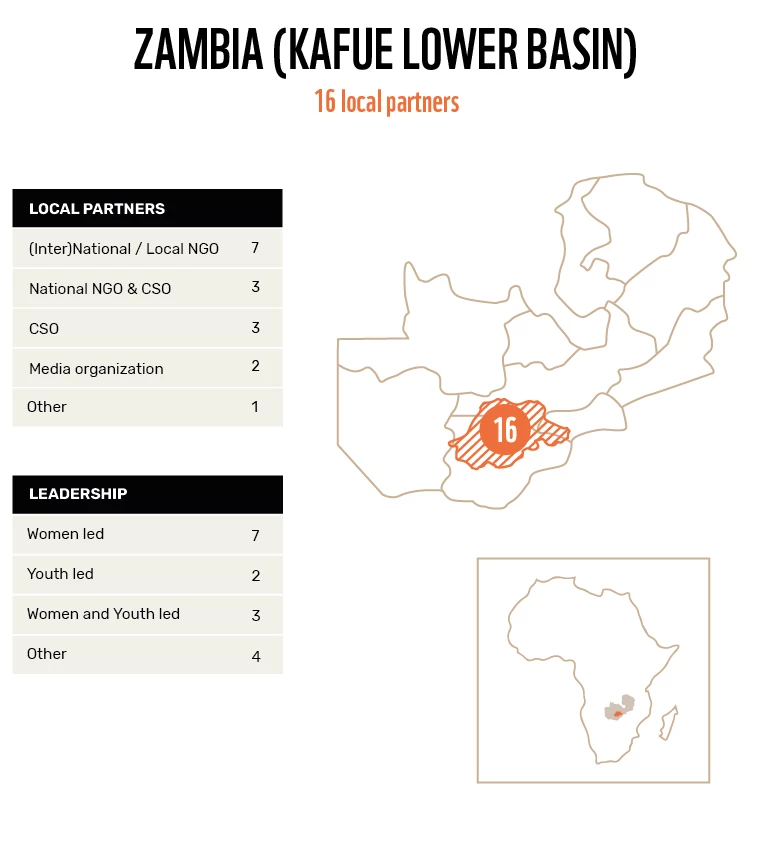Zambia
Communities reduce meal quantities and shift to a vegetable-only diet due to climate change.
The Lower Kafue Basin is changing
The Kafue Flats are located on the lower section of the Kafue River comprise a low lying floodplain system. It is 6,500km², with a shallow gradient of an area of 20m, which results in diverse habitats. It hosts a Ramsar site and two National Parks: Blue Lagoon and Lochinvar, and a large Game Management Area. The region is changing and will not cope with the double forces on rapid population and climate change, causing droughts and floods.
Read more about the landscape (PDF).
What is the situation?
Almost 1,000,000 people reside in the Kafue Flats area with many relying on the wetlands for their livelihood. The Kafue River plays a crucial role providing irrigation and water supply to the capital city of Lusaka. It also accounts for a significant portion of the country's hydropower production. The main socio-economic activities in the region are fishing and agriculture. The area has experienced increasing temperatures (1.3 °C/annual) and decreased rainfall (1.9 mm/month), leading to shorter and more unpredictable rainy seasons. Droughts and floods have become more frequent, affecting a larger area.
How can VCA support local partners?
The aim is to develop locally relevant and inclusive climate solutions that deliver tangible benefits to both people and nature in the Kafue flats. Civil society, particularly marginalized groups, lacks representation and involvement in decision-making processes related to local climate agendas. The Voices for Just Climate Action (VCA) network aims to address these challenges by expanding civic space, identifying regional linkages with other movements and developing local solutions for climate change adaptation.
The VCA network consists of a diversity of local organizations in Zambia.


